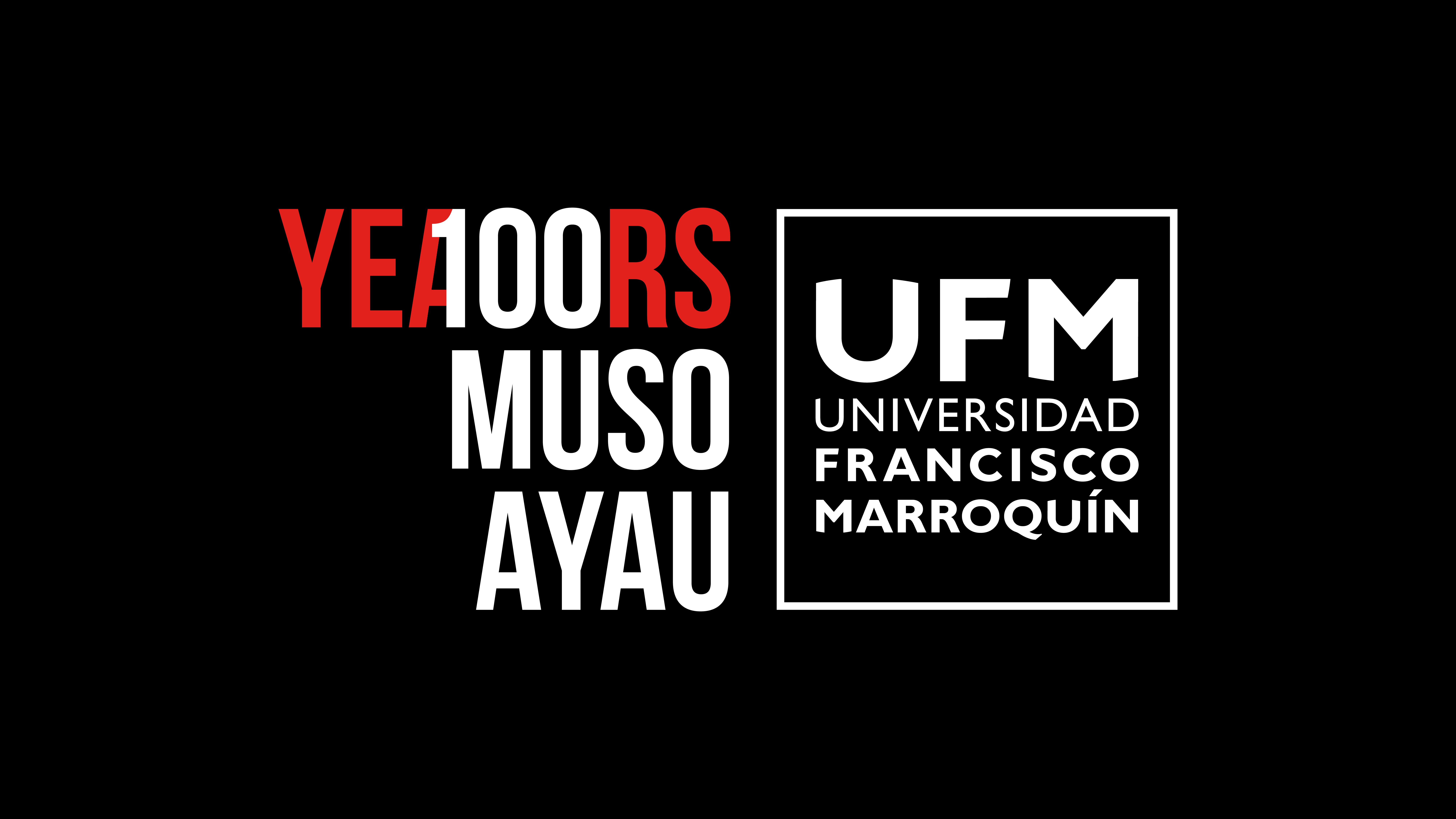
Manuel F. Ayau Cordón, affectionately known as Muso, was a man of clear convictions and unwavering commitment to individual liberty. His vision centered on a more prosperous Guatemala, where people could live and act freely, unburdened by the constraints of state coercion. Muso understood that to achieve genuine change in the country, it was not enough to merely theorize about social and economic problems; one had to act with determination and share the knowledge gained.
In the 1950s, Muso and a group of friends began to question the economic policies being implemented in Guatemala. They realized that these public policy decisions were failing to improve the welfare of the population or effectively combat poverty. Although none of them were professional economists, their passion for understanding Guatemala’s economic reality led them to seek answers in the major economic schools of thought of their time. It was through this exploration that they encountered the ideas of the Austrian School of Economics.
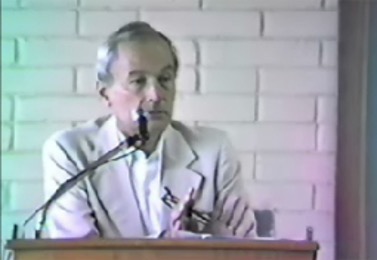
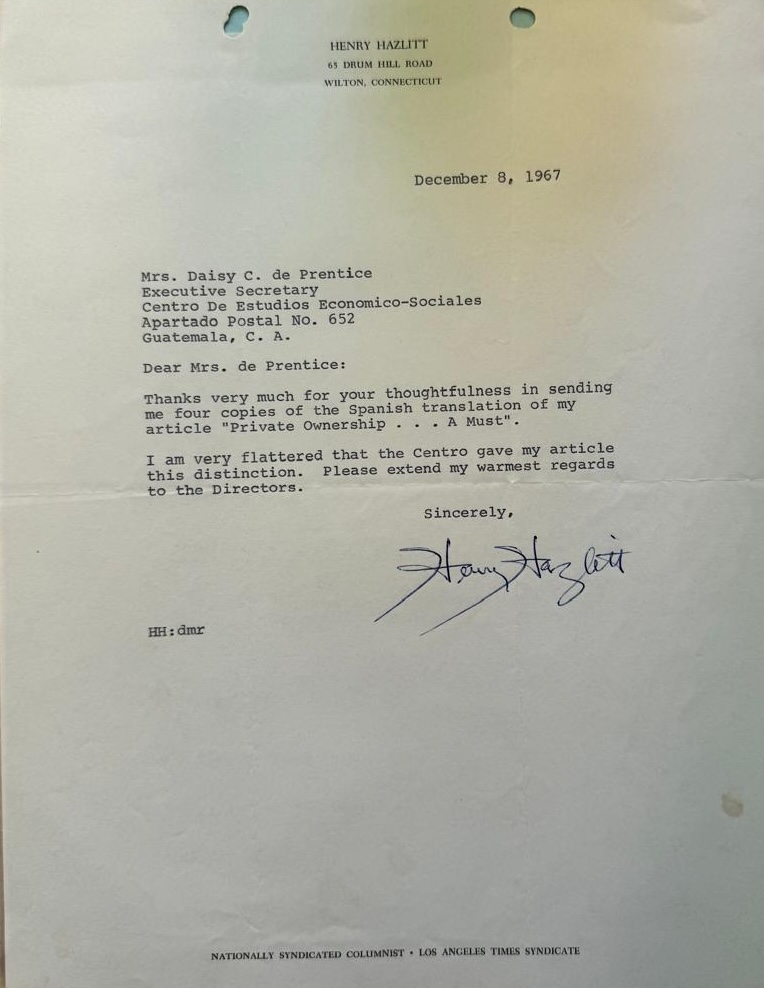
In 1958, concerned about the neglect of long-term issues in Guatemala, the group, led by Muso, Ernesto Rodríguez Briones, and others, decided to found the Center for Economic and Social Studies (CEES). The center was officially registered in 1959. Its mission was to study and defend individual freedom—the freedom to produce, consume, and exchange without coercion or privileges. They believed that, to achieve peaceful prosperity without the oppression of certain ideologies, it was crucial for influential individuals to understand the principles of a free society and also feel compelled to defend them.
The founding of CEES took place in a context deeply influenced by socialist ideas, which, in their view, threatened to destroy individual liberty—something they regarded as the cornerstone of human rights. They observed how influential figures in politics, academia, the Church, and other spheres fell were increasingly swayed by theories that were presented as modern and well-founded, but which, in their opinion, only served to promote oppression and erode freedoms.
From its inception, CEES was deeply committed to studying and translating key texts, which allowed its founders to deepen their understanding of the principles of classical liberal economics. One of the most significant early projects was the reading and discussion of Ludwig von Mises’s Theory and History, a process that lasted a year and involved members like Carlos Springmühl and Antonio Aycinena.
Inspired by authors such as Mises and Friedrich A. Hayek, they embraced the premise that individual liberty, the protection of private property rights, and the free market could generate sustained prosperity that would benefit everyone. They were determined that this knowledge should not remain confined to books or group discussions but should be translated into concrete actions that could promote prosperity.
The first Board of Directors of CEES consisted of Manuel F. Ayau Cordón (Muso), Antonio Aycinena, Imrich Fischmann, Ernesto Rodríguez Briones, Enrique Matheu Palomo, Enrique García Salas, and Alejandro Arenales C. As the center’s position increasingly aligned with individual liberty, differences of opinion began to emerge among its members. Some were not as firmly convinced as Muso about the benefits of free trade without any state intervention. The prevailing mindset of the time favored industrialization through import substitution (ISI) and, by extension, the protection of emerging industries. Over the following years, some of the original members were replaced by Carlos Springmühl, Ulysses Dent, Hilary Arathoon, Estuardo Samayoa, Félix Montes, and Antonio Nájera.
In 1959, during a trip to Mexico, Ernesto Rodríguez Briones met Agustín Navarro and Gustavo Velasco from the Institute for Economic and Social Research. They introduced him to the Foundation for Economic Education (FEE), a leading organization in promoting economic freedom. The collaboration with FEE proved crucial for the development of CEES. The board members attended seminars and received intellectual support that translated into confidence and direction.
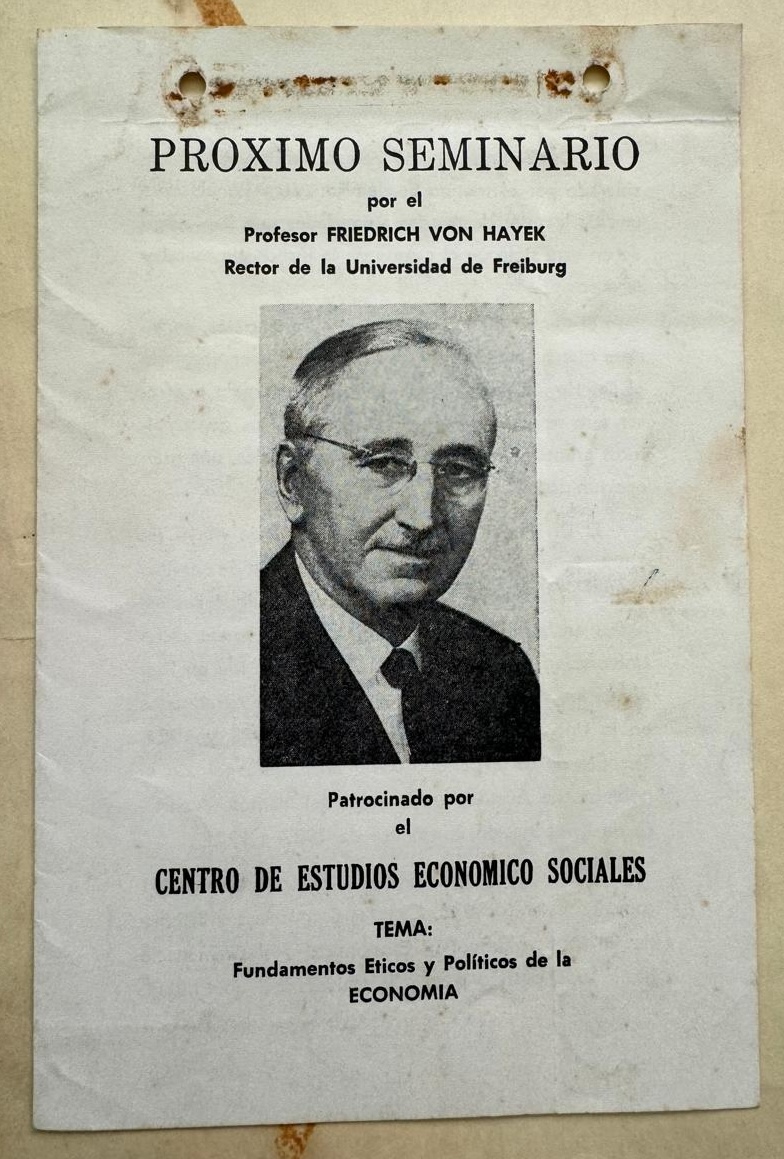
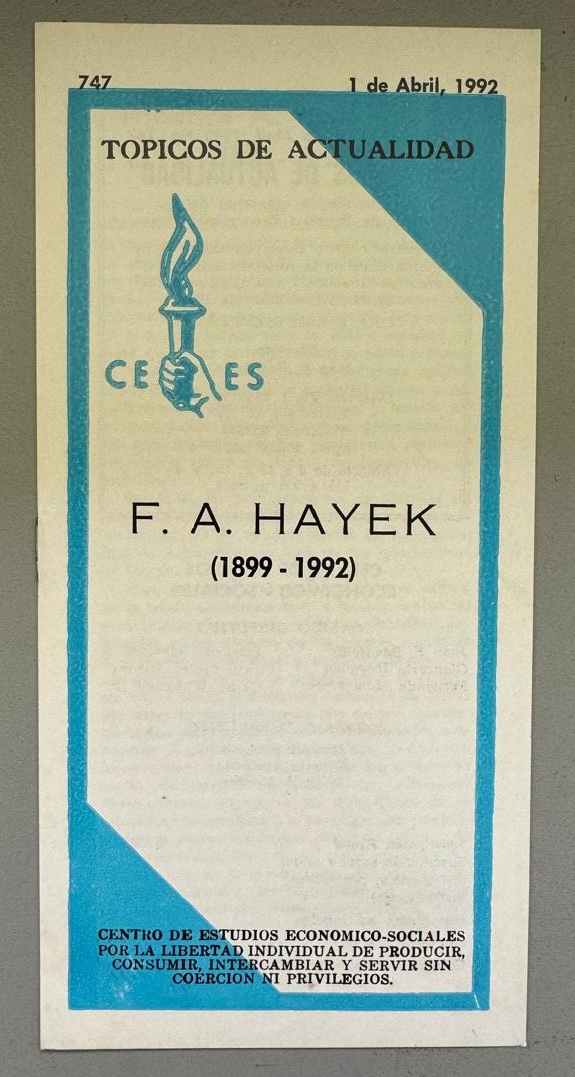
Outreach efforts began the month after its founding, with the publication of the now-famous brochure Tópicos de actualidad. The first brochure was published on December 1, 1959, and consisted of a lecture given by Alberto Benegas Lynch on September 11, 1958, at the National Academy of Economics in Montevideo. The lecture, and the brochure, was titled Democracy and Liberty. Since then, Tópicos de actualidad has been published biweekly. Today, it is published monthly and is available electronically on the website cees.org.gt, where all passed issues can also be accessed. These brochures, particularly those written by Muso, have had a lasting impact across the region.
CEES also received financial support from the Friedrich Naumann Foundation, which enabled its members to study in Germany and meet figures like Ludwig Erhard, who later visited Guatemala.
The first CEES conference took place in December 1961 at the GADEM Theater, where Arthur W. Margit presented a talk on the errors of tariff barriers, sparking an exchange of ideas with socialist economists.
During this period, Ulysses R. Dent joined CEES, helping to solidify the institution both intellectually and operationally. A self-taught and passionate defender of individual liberty, Ulysses shared his knowledge and resources with the group, contributing to the strengthening of CEES’s mission. The organization stood out for its positions that opposed the dominant ideas of the time, such as Keynesianism and tariff protection, and was even considered radical by certain sectors of the right.
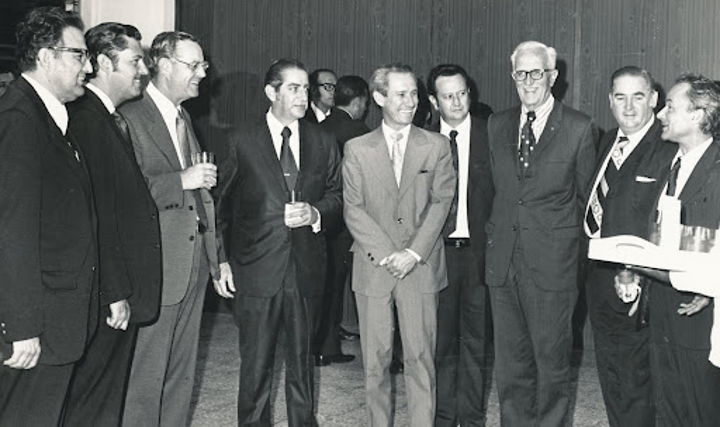
Hilary Arathoon was another key member, contributing greatly with his calm demeanor and his ability to think and write deeply. Fully aligning with CEES’s mission, Hilary served as its president for thirteen years and wrote several Tópicos de actualidad.
The influence of the Mont Pelerin Society, a prestigious group of intellectuals dedicated to promoting freedom and the free market worldwide, was pivotal for CEES. The international contacts and the ideas exchanged within these circles reinforced its mission and created opportunities to host prominent intellectuals. Notable visits included Ludwig von Mises in 1964; Friedrich von Hayek, Benjamin Rogge, and Leonard Read in 1965; Israel Kirzner in 1966; and Ludwig Erhard in 1968. Erhard, often credited with the "German economic miracle," implemented reforms that brought prosperity to post-war Germany. Other influential figures also visited Guatemala at the invitation of CEES, with the goal of bringing the most advanced ideas of economic liberalism to the country. These visits strengthened the prestige and influence of CEES in Guatemala.
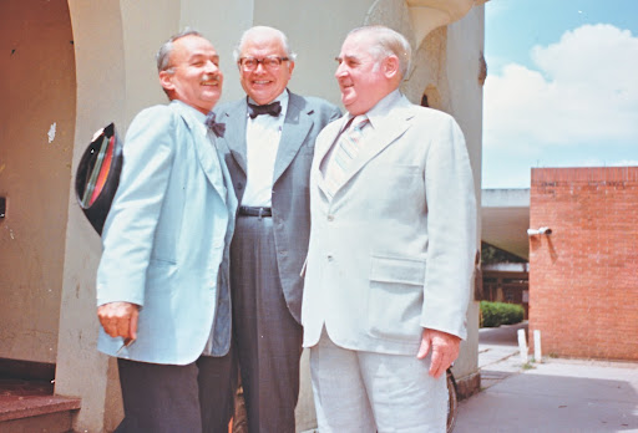
Members of the Mont Pelerin Society visited Guatemala
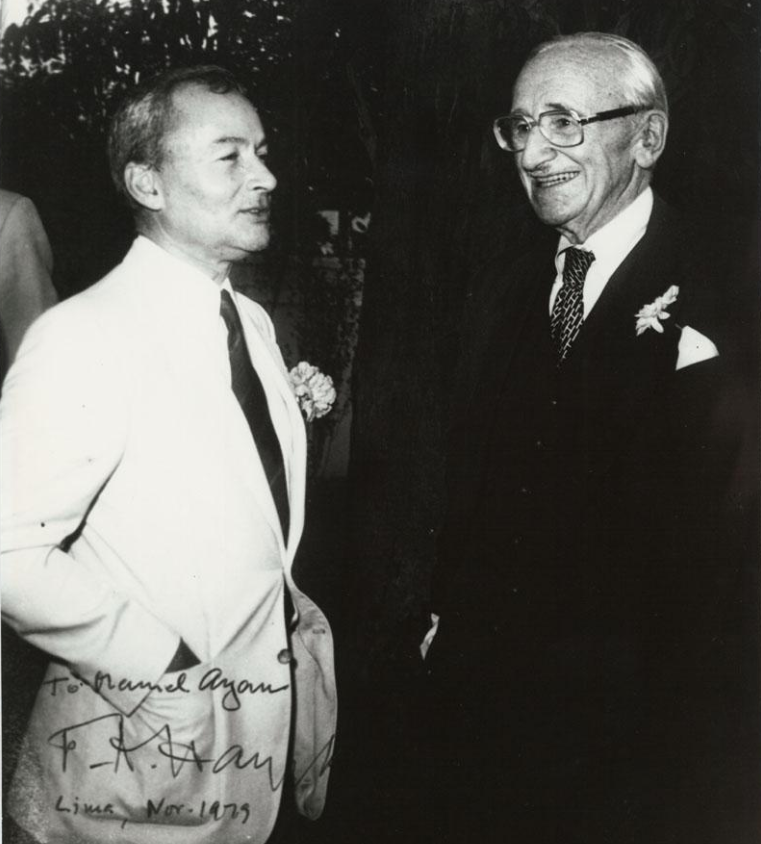
Muso and Friedrich von Hayek
In 1968, the directors of CEES included Hilary Arathoon, Antonio Aycinena, Ulysses R. Dent, Félix Montes, Antonio Nájera, Estuardo Samayoa, and Muso. Several of them were invited to join the Mont Pelerin Society.
CEES expanded its activities to include radio programs, columns in newspaper like El Imparcial, and television seminars, all with limited financial resources but fueled by great enthusiasm and commitment. It also published a bi-monthly newsletter, featuring selected and translated articles from The Freeman magazine and other texts on liberty. These articles were discussed and translated by the members, which enriched their experience and deepened their knowledge.
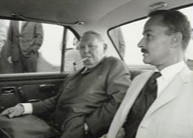
Ludwig Erhard´s visit to Guatemala
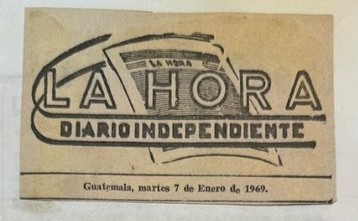
In 1969, at the suggestion of Antonio Nájera, CEES invited Rigoberto Juárez-Paz to teach logic. A scholar of philosophy and logic, Juárez-Paz became a key collaborator, enriching the group’s knowledge with his expertise in the Austrian School of Economics.
Since its inception, CEES has been a private, cultural, academic, apolitical, nonreligious, and nonprofit entity. Its core ideal is for the people of Guatemala to live by and defend the principles of liberty according to the rule of law, where respect for individual freedom—to produce, consume, exchange, and serve, free from coercion and privileges—takes priority.
Essentially, CEES is a think tank created to study and promote ideas about liberty. Over time, CEES has contributed to the rigorous study and discussion of current issues in our country, and has become a reference point and meeting place for individuals dedicated to the pursuit of truth, liberty, and justice. Its members and friends have worked tirelessly to build a more prosperous society.
Their efforts are focused at creating an increasingly freer world—one in which respect for individual rights and personal responsibility prevail—and a Guatemala that is more and more guided by these values and integrated into that world.
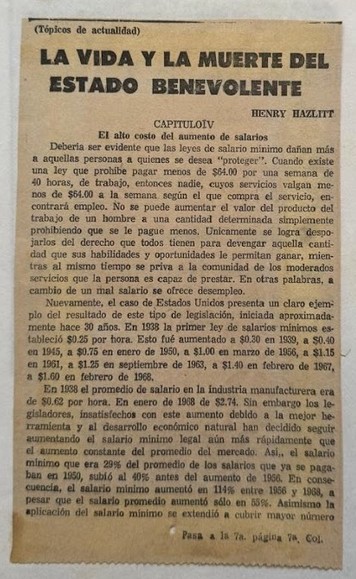
The work of the CEES will always be inspired by this declaration of principles:
- The fundamental rights of individuals are life, liberty, justice, and private property.
- The foundation of harmony in human relations lies in the moral principles of Christianity and not solely in the strict adherence to the law.
- The enjoyment of a person’s economic freedom is an indispensable requirement for being able to fully exercise other freedoms.
- Maintaining and fostering the free enterprise system is the most effective way to raise the standard of living for the people.
- The strongest and most effective stimulus for achieving collective prosperity is guaranteeing individuals the total and unrestricted enjoyment of the fruits of their labor.
- People will improve their condition only to the extent that their work benefits or serves others, and in direct relation to their productivity.
- Permanent abundance is the result of the continuous accumulation of individual efforts.
- In a free economy, the consumer public can only exercise its sovereignty by choosing the products that best meet its needs, thus determining the investments and sources of employment that should prevail.
- The role of government should be limited to exercising the authority granted by law to guarantee citizens the exercise of their rights, and it should never interfere in activities that belong solely to the domain of private initiative.
Muso always believed that knowledge should drive change. For this reason, CEES not only publishes studies and analyses but also actively promotes public debate, influencing the country's economic policy. Guided by its motto, “For the individual freedom to produce, consume, exchange, and serve without coercion or privileges,” CEES seeks to create a society based on merit, responsibility, and respect for liberty.
While personally leading CEES, Muso had the opportunity to exchange ideas with prominent figures such as Friedrich Hayek and Sir Anthony Fisher, among many others. It was through the support of academics and intellectual friends in circles like the Mont Pelerin Society and the Foundation for Economic Education that he decided to take on the challenge of creating a classical liberal university in a poor, third-world country—one where the battle for ideas had shifted from rhetoric to violence. The result of these internal discussions among CEES members, led by Muso, was the establishment of Francisco Marroquín University, which was inaugurated on January 15, 1972.
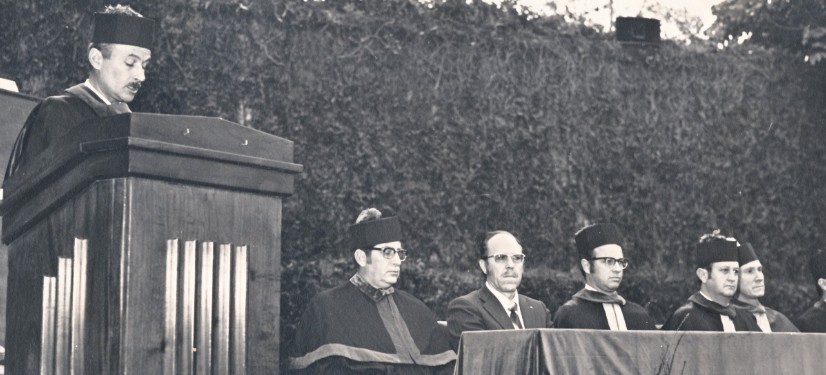
Inaugural address by Manuel F. Ayau. Universidad Francisco Marroquín.
January 15, 1972.
Muso left not only a legacy of ideas but also a tangible contribution that continues to influence Guatemalan society and beyond. His passion for knowledge and his determination to act in order to transform his environment make him a central figure in the history of liberal thought in Latin America. His life teaches us that true learning is the kind that leads to action.
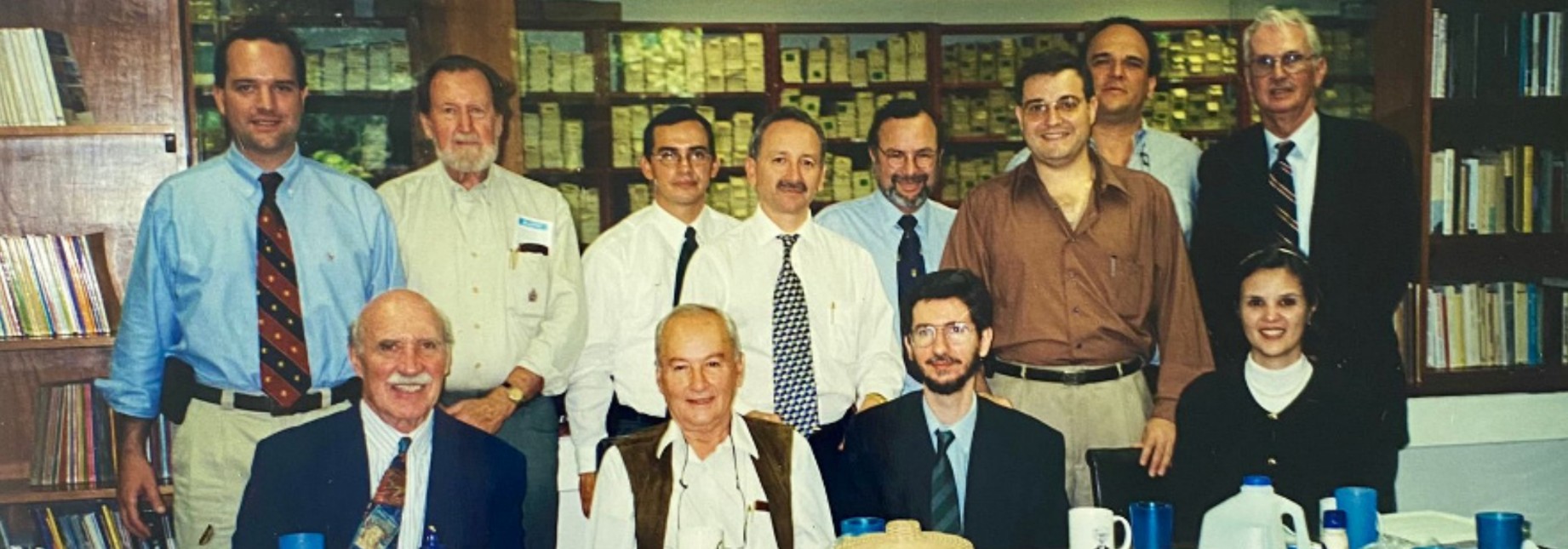
The Board of Directors of the CEES, with Gabriel Zanotti and Dick Smith as guests. (Photograph shared by Carroll Ríos de Rodríguez)
